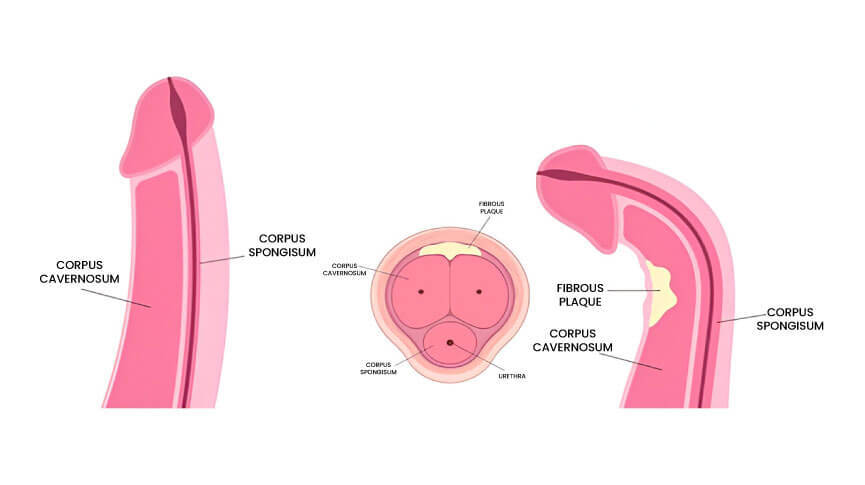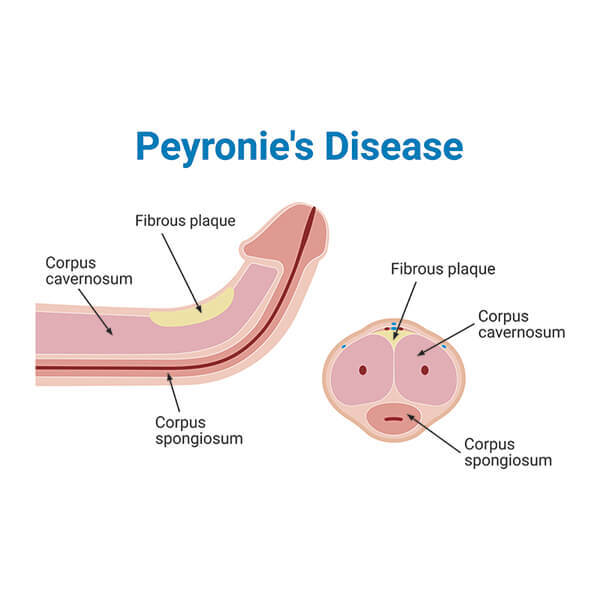
Peyronie's Disease causes the penis to curve due to scar tissue. This can lead to discomfort, bending, and emotional stress. If you're looking for relief or products to support intimacy, visit our DOXXES store on North Freeway / Little York for caring and discreet support.
What Is Peyronie’s Disease?
Peyronie’s Disease happens when firm scar tissue (called plaques) builds up under the skin of the penis. This causes it to bend or curve, especially during an erection. Pain and lumps may also appear.
Types of plaque:
- Superficial: Just under the skin
- Deep: Involving deeper tissue and erection muscles
- Provoked: Only causes symptoms during stimulation or touch
Why Does It Happen?
Emotional causes may include:
- High levels of stress or anxiety
- Past sexual trauma or painful experiences
- Relationship challenges or lack of connection
Physical causes include:
- Injury or infection in the penis
- Low testosterone or hormone changes
- Weak pelvic muscles
- Natural body differences
Most people experience a mix of both emotional and physical triggers.
Examples and How to Identify Triggers
Real-life examples:
- Pain begins after rough or sudden sex
- A partner feels nervous to try again
- Discomfort starts after changing a medication
- Curving gets worse when sleeping in a new position
How to find patterns:
- Write down symptoms, pain levels, and sexual activity
- Compare good and bad days to spot triggers
- Try using extra lube and gentler angles
Who Is Affected and Why It Matters
Peyronie’s Disease affects men, especially those over 40. It can lower self-esteem, affect mood, and reduce sexual confidence.
Partners can also feel guilt, confusion, or fear. These emotions may lead to distance or stress in relationships. Talking openly helps both people feel supported.
How a Sex Therapist Can Help
A therapist can guide you through the emotional impact of this condition. They may:
- Talk through sexual history and physical concerns
- Screen for stress, sadness, or anxiety
- Help partners communicate and support each other
Treatment and Coping Options
Emotional support:
- Individual or couples counseling helps reduce shame, fear, or miscommunication
Medical options:
- Injections like collagenase can soften scar tissue
- Oral medications may reduce pain or improve blood flow
Devices:
- Traction therapy helps stretch the penis gently over time
Healthy habits:
- Pelvic floor exercises
- Less stress
- Regular check-ins with a doctor help improve recovery

How DOXXES Can Support You
At DOXXES, we provide body-safe tools to support comfort and healing:
- Water-based lubricants for gentle movement
- Pelvic floor exercisers to strengthen core muscles
- Gentle vibrators to explore safe touch
- Prostate massagers to boost pelvic health
Every item comes with easy instructions and hygiene tips. They can work alongside your medical or emotional care plan.
How to Talk About Peyronie’s Disease
Tips for open communication:
- Use “I” statements like “I feel nervous when it hurts”
- Speak in a private, relaxed setting
- Read trusted info together
- Remind each other that intimacy is a shared journey
- Seek a therapist if it’s hard to talk alone
Visit DOXXES – North Freeway / Little York
Come to our North Freeway / Little York store for private, respectful guidance. Our team can help you choose the right products and answer any questions in a judgment-free space.
Conclusion
Peyronie’s Disease can affect your body and emotions. But with support, open dialogue, and the right tools, things can get better. Visit DOXXES to begin your journey toward comfort, connection, and confidence.
FAQs
- 1. What is Peyronie’s disease?
It’s a buildup of scar tissue in the penis that causes bending and sometimes pain. - 2. Can I get treatment at North Freeway / Little York?
Yes. We offer evaluations, referrals, and support for medical or emotional care. - 3. What causes it?
Injury, repeated trauma, genetics, or age-related changes. - 4. Is the curvature always painful?
Not always. Some men only feel pain with erections. - 5. Can Peyronie’s cause erectile dysfunction?
Yes. Physical and mental stress can lead to ED in some cases. - 6. Are there non-surgical options?
Yes. Pills, injections, and traction therapy are common treatments. - 7. When is surgery an option?
If the curve is severe or unchanged after 12 months. - 8. Is it a common condition?
Yes. Around 10% of men—especially those over 40—may develop it. - 9. Do you offer counseling at this location?
Yes. We provide supportive sexual health counseling for individuals and couples. - 10. Will it go away on its own?
Sometimes it stabilizes. But early treatment often improves results.
